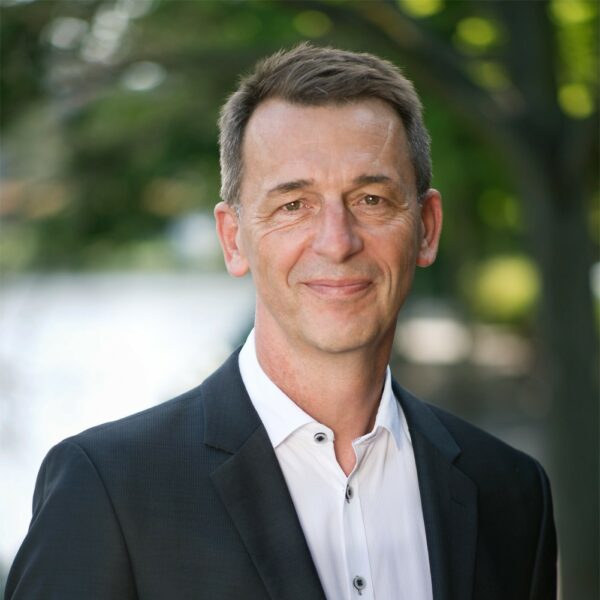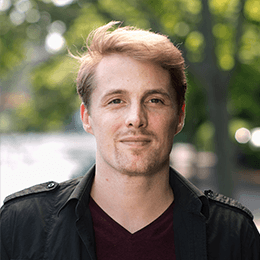ICSOs and intergenerational fairness: Why long term thinking is important and empowering in today’s whirly world
28th July 2021 by Vicky Tongue and Julie Jenson Bennett
The Centre’s new Scanning the Horizon Sector Guide on ‘Strategic Decision-Making in a Whirly World’, explores five main strategic pointers for civil society decision-making and adaptation in complex, uncertain ‘never normal’ futures. To further explore the fifth strategic pointer, ‘Rethink adaptable strategies to embrace emergent change with-in a long-term view’, we recently ran leadership and strategy events with two of our strongly recommended resources, including the School of International Futures (SOIF)’s exciting work on intergenerational fairness.
In this blog, Vicky Tongue, the Centre’s Head of Futures and Innovation, and Julie Jenson Bennett, Practice Lead, Intergenerational Fairness, School of International Futures, reflect on how ICSOs can contribute to and benefit from long-term intergenerational thinking and practice.
—
Intergenerational fairness as an important skillset for a whirly world
Embracing the ‘Long Now’ is one strategy to help navigate a ‘whirly’, uncertain world, stretching responsibility over longer timescales – beyond a human lifetime – and giving a bigger picture to short-term turbulence. It helps crisis decision-making to elevate long-term equity and extends ‘legacy’ thinking to help identify what should be kept from the past, what should be unlearned in the present, and what is still needed to avoid future-loading major risks from important decisions made today.
All big current global issues have huge intergenerational fairness and equity dimensions, both between different generations alive today but also not yet born. Intergenerationally fair policies and strategic decisions allow people of all ages to meet their needs, and meet the needs of current generations without compromising the ability of future generations to meet their own needs. ICSOs have an important role in ensuring that decision-makers take such considerations into account beyond current political cycles. But they also have a responsibility to ensure that their own organisational decisions are also fair for all generations.
The intergenerational fairness topic is particularly fascinating. As an organisation embarking on its strategy, this is particularly relevant in order to ‘disturb/disrupt’ current decision-making, to ensure long-term strategic choices for an alternate future.
Shahin Ashraf, MBE, Head of Global Advocacy, Islamic Relief Worldwide.
Interest in intergenerational fairness as a growing trend
Signals around equity between generations as a growing issue have been getting stronger since the 2008 financial crisis, further amplified by increasing mobilisation on climate change, and with the global pandemic. Younger generations have been getting more active in suing their governments to establish rights and duty of care towards the future. There is increasing interest from citizens, politicians and policy-makers around intergenerational cohesion and solidarity – rather than conflict – and different national ‘next or future generations’ initiatives are emerging. The OECD published a landmark report on intergenerational justice last year challenging the global policy community to be more systematic about this.
But this can come with major challenges which make it hard to accomplish. Future and younger generations have no vote, there isn’t much reliable information available to decision-makers about the long-term impact of most public policies, and the issue can quickly become polarised and make constructive discussions difficult. So how can we move from good intentions to true accountability, and ensure that (in Gaston Berger’s words) we’re looking at the future to disturb the present, and taking informed decisions today to design better, equitable policies and programmes?
A practical, flexible framework for assessing intergenerational fairness
The School of International Futures (SOIF) and Calouste Gulbenkian Foundation’s ‘Framework for Intergenerational Fairness’ is a practical framework which any organisation – without prior futures or foresight experience – can use to assess whether any strategic, policy or investment decision proposed by others, or itself, will be equitable for people living today and tomorrow. This can be a very empowering process to support informed action-oriented conversations with what could otherwise remain an interesting, important but remote and hazy theoretical discussion.
The framework consists of three key, flexible elements:
- A policy assessment tool to analyse whether decisions on what is fair and unfair for all generations, exposing specific dimensions of unfairness, identifying unintended consequences and making trade-offs more explicit.
- A participatory national, or community, dialogue to define collective goals of what a fair and desirable future looks like – including conversations with future generations by proxy – for the policy to be assessed against,
- Institutional ownership to determine how the methodology will be resourced, used and evaluated in government and society, so that it has independence, accountability, political legitimacy and administrative commitment.

Check out this introductory presentation from this year’s Global Foresight Summit for more.
Assessing decisions in as little as two hours
Any strategic, funding or policy decision can be assessed in five ways, to see if it:
- Disadvantages people at any particular life stage
- Disadvantages people at any period in time, present or future
- Increases the chances of inequality being passed on through time
- Restricts the choices, agency and freedom of people in future
- Moves society further away from its vision of the future.

In a couple of hours, you can use the tool to make clear judgements and support risk analysis, contingency planning and policy design. Diagnostic prompts help you scan and assess policy impacts and trade-offs in detail, stress-test the decision against alternative future scenarios, and scrutinise the policy-making process itself for unfairness. You can adapt the lenses and depth and breadth of analysis for different issues and audiences.
Pilots over the last three years have successfully used the tool on a range of live policy issues and with diverse assessor audiences, including citizens. It enables nuanced understanding of the dynamics at play in complex policy areas, and can identify specific cohorts worse off under a policy scenario, and recommendations for additional policy areas and communications toaddress issues and perceptions of unfairness.
How ICSOs can use it and find out more?
There are two main angles for CSOs:
- Holding governments to account for difficult issues of intergenerational fairness – ICSOs can use this framework in their advocacy work, or with concerned citizens and media actors, to scrutinise the work of governments e.g. during policy design, parliamentary scrutiny, spending reviews.
- Shining a light internally – Organisations can use these principles to assess any of their own strategic policy or financial decisions – especially around spending and granting – to objectively establish whether they are fair for the long term, or just responding to short-term interests.
Our conversations also identified two exciting potential wider applications:
- The domains and assessment criteria in the tool can help facilitate conversations ‘by stealth’ about entrenched power interests and inequality structures in the present. This can generate new kinds of conversations outside of traditional framings which come with political/polarised debates, divisions and rhetoric. So it could also be a useful model to support difficult ‘power shift’ conversations in our sector and agree the desirable fair, legacy outcomes we want to collectively achieve.
- An interesting starting point for global conversations around the post-2030 SDG successor agenda, which runs out soon!
What’s next for the framework and how to stay involved?
SOIF is interested in expanding networks and coalitions to upskill and scale these processes, including ICSOs. They are open to providing support if you are interested in adapting it for your contexts or policy issues.
As a starter, they will be running more webinars from August to introduce new audiences to the framework, and also hands-on participatory sessions to use the policy assessment tool on live issues – in as little as two hours. For updates and opportunities, visit https://soif.org.uk/igf/.












